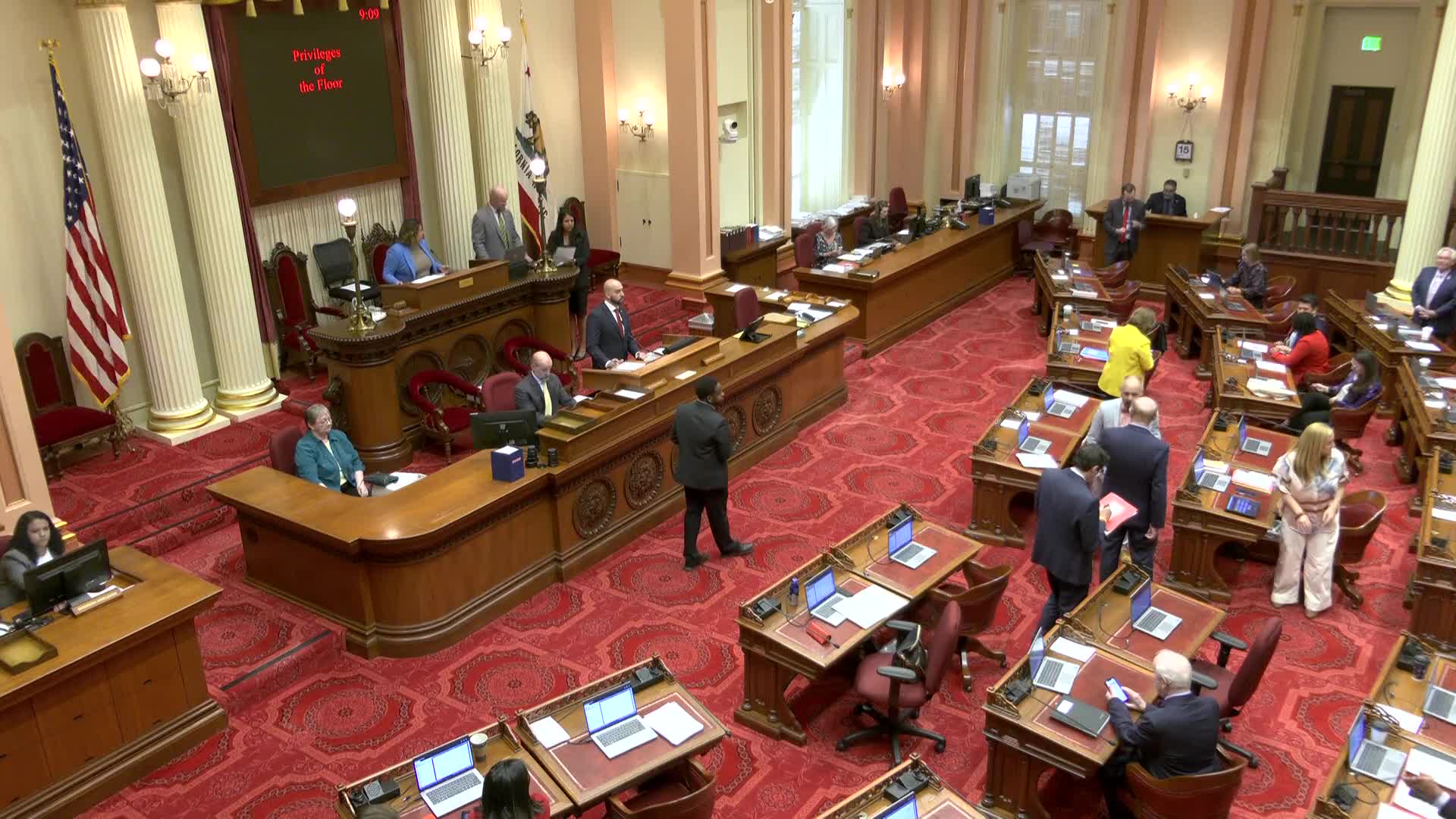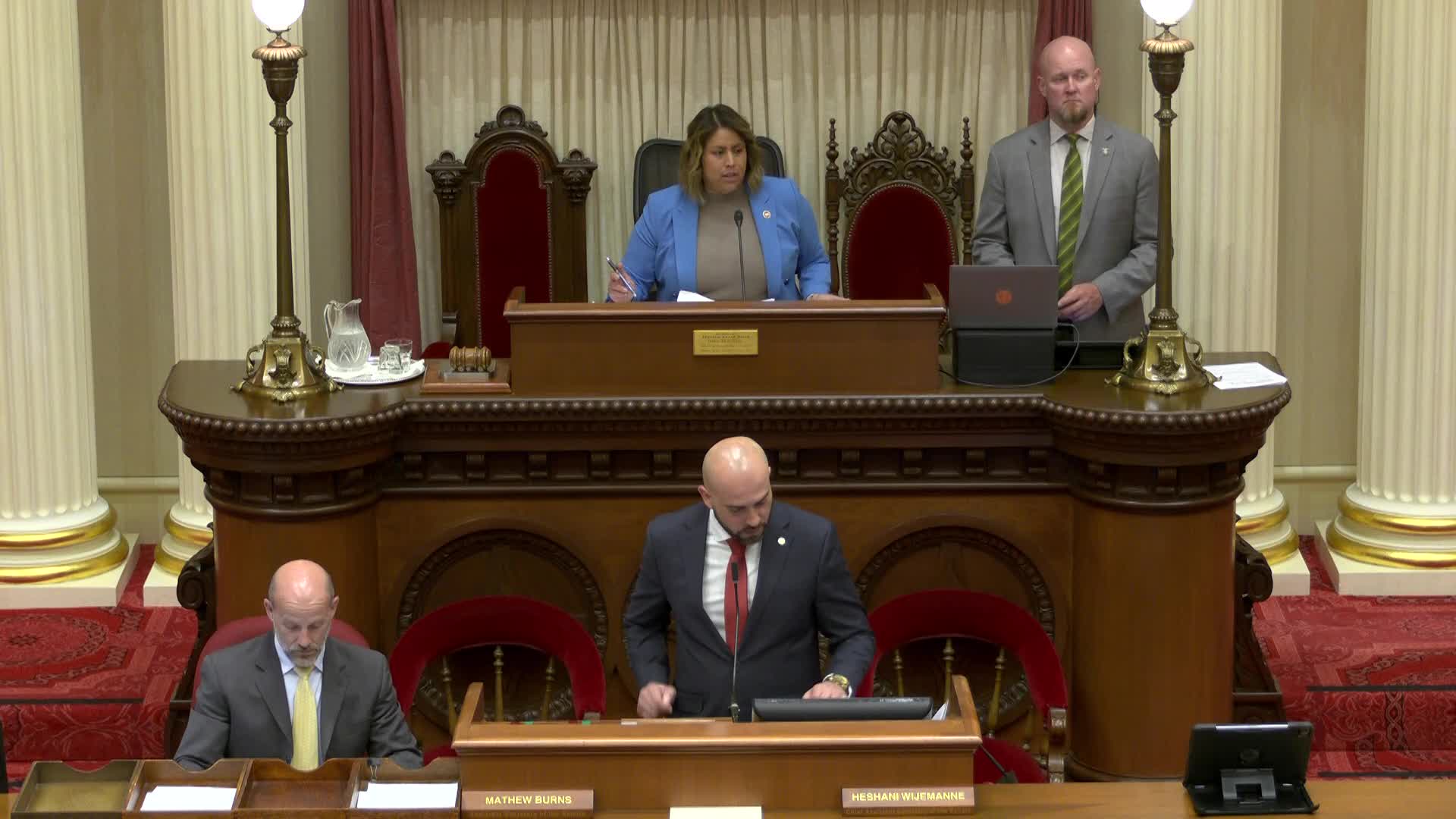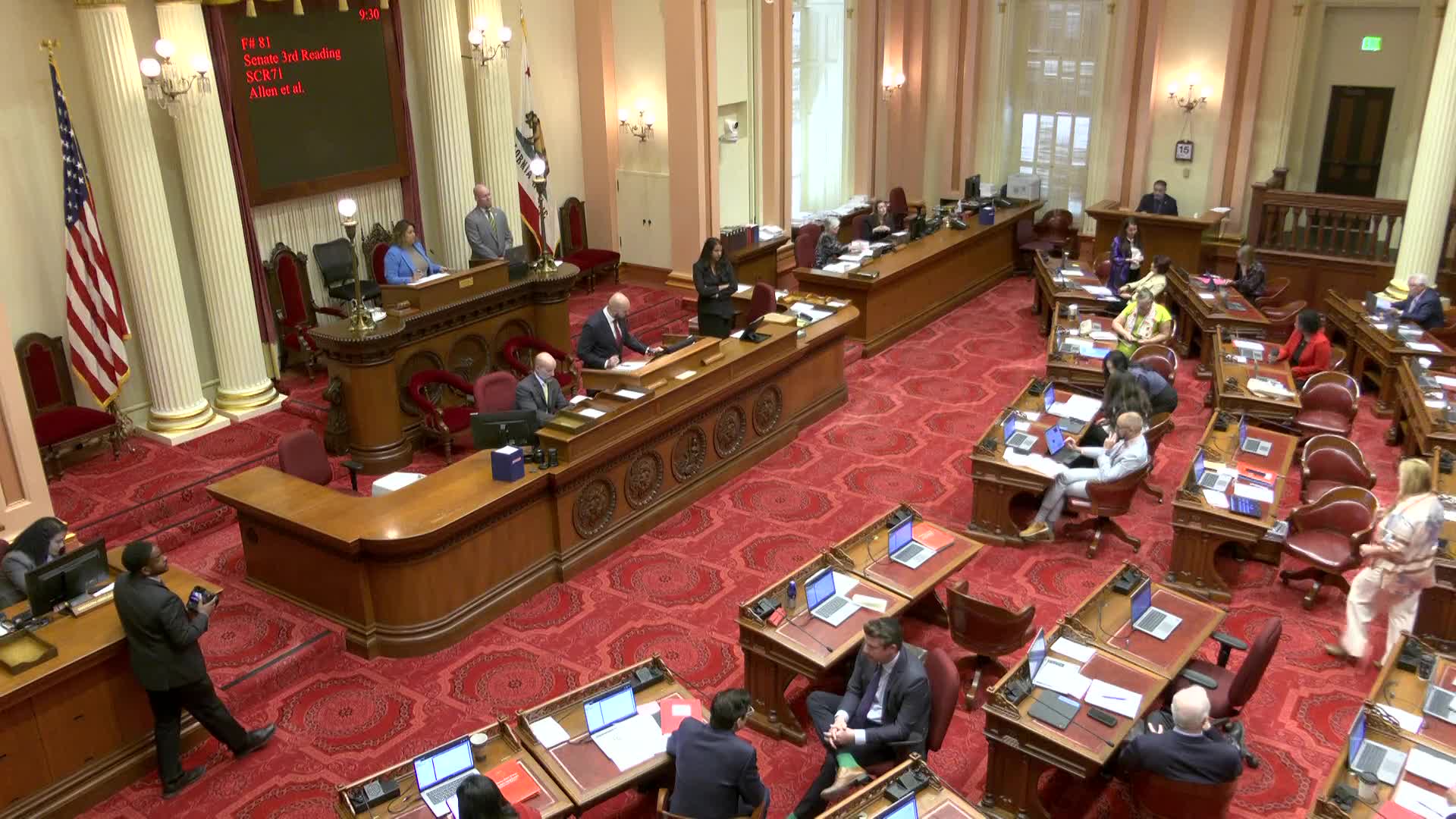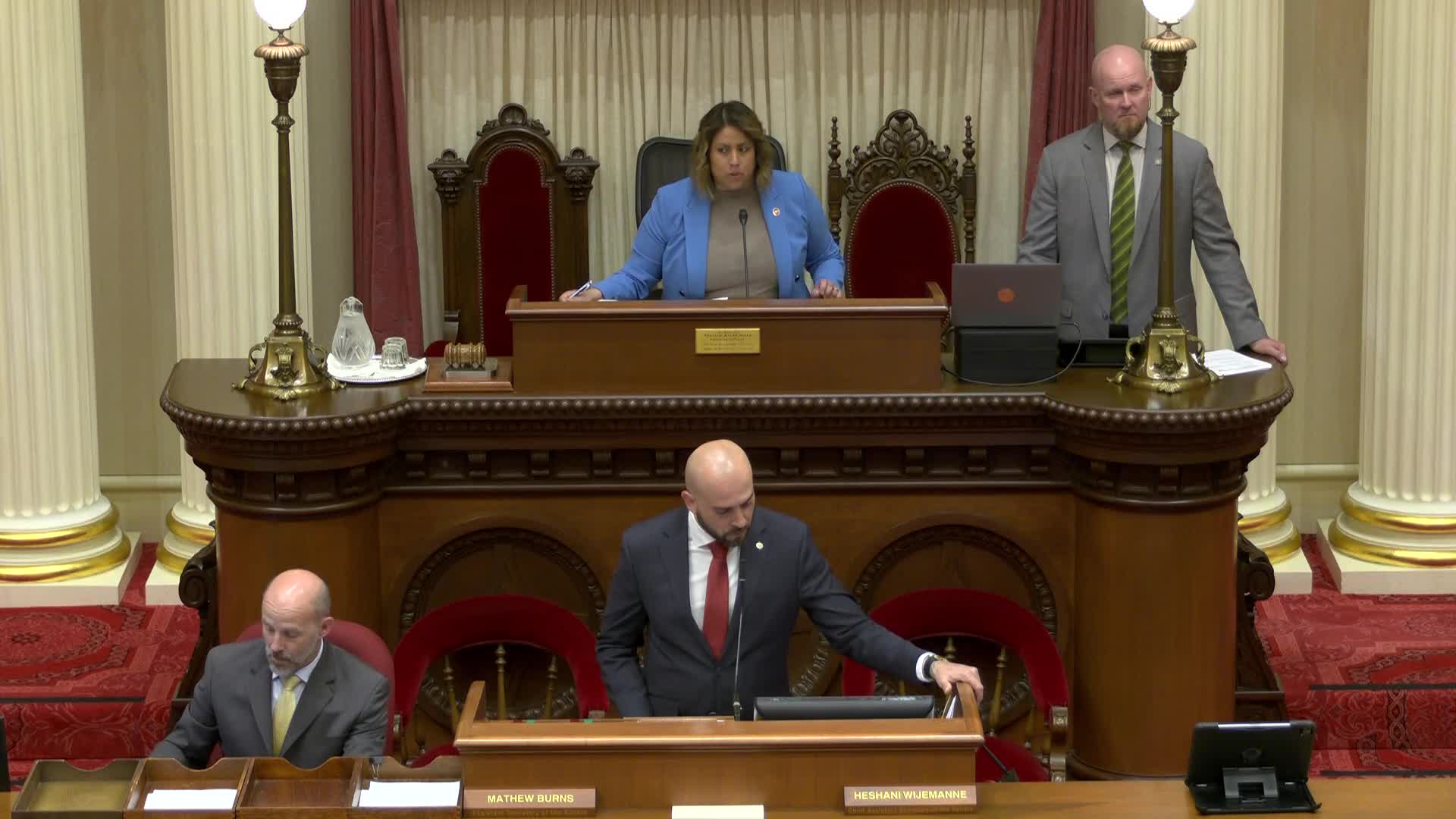Article not found
This article is no longer available. But don't worry—we've gathered other articles that discuss the same topic.

Senator Smallwood Cuevas spotlights community land trust leaders; says she will author SB 592 to lift preemption

Senate proclaims Child Care Awareness Month, cites high costs and workforce losses

Senate honors health workers for National Hospital Week; highlights wildfire response

Senate adopts resolution urging reversal of proposed NIH funding cuts

